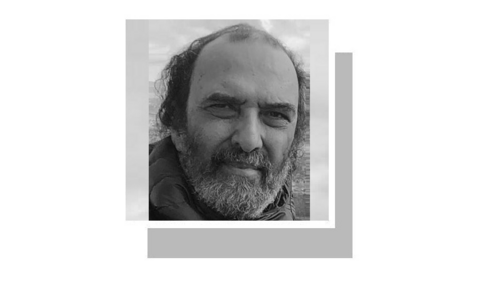WHEN the British established their firm control on the Indian subcontinent after unsuccessful resistance by the native freedom-fighters in 1857, the Muslims became demoralised. There were many reasons for this outcome.
The British apparently viewed Muslims with suspicion and contempt, being the former rulers of the land. They also believed that the Muslims may regroup to lay claim on the rule of the country, whenever an opportunity may arise.
On the other hand, the Hindus — the majority community in the subcontinent — took strategic benefit of the emerging situation. They organised themselves and slowly gained economic and political advantage.
The Hindus also studied the system of governance and western democratic principles. They realised that their numerical superiority shall become an overwhelming advantage. It took the Muslims decades to revive socially, politically and economically.
Having suffered at the hands of the Hindu majority, politics in Pakistan has a constant majority-versus-minority streak.
Initially, most of their political manoeuvrings and adjustments were jointly undertaken with the Hindus and other communities under the Indian National Congress. The creation of the All-India Muslim League (AIML), demand for separate electorates, Khilafat movement and its fallouts and many other happenings shaped a distinct Muslim political thinking.
The fear that in an open democratic contest, the Muslims shall always be outnumbered caused great concern amongst the leaders and later the ordinary citizens.
After the promulgation of the Government of India Act of 1935, elections were held which were swept by Congress that formed governments in seven provinces. The AIML performed very poorly in comparison. However, this episode also paved the way for a fierce contest between the two parties to attract the cumulative Muslim support in the subcontinent.
Many scholars believe that some controversial undertakings on the part of Congress helped the AIML garner much greater support to eventually become a powerful voice of the Indian Muslim polity.
In this backdrop, Quaid-i-Azam Mohammad Ali Jinnah and his comrades successfully inspired Muslim masses to demand a separate state for their safe and peaceful existence. The Pakistan Resolution of 1940 enunciated the arguments for a separate national status of the Muslims of the subcontinent.
It is rightly considered the milestone that helped articulate the freedom struggle of the Muslim polity in the subcontinent. It was a distinct paradigm shift that took place under the influence of changing strategic, political and inter-communal relations.
Elections in 1946 finally resulted in convincing victory for AIML candidates. Thus the much needed political clout was acquired by AIML that enabled Jinnah to successfully negotiate the Pakistan scheme, that saved a sizable — if not the entire — Muslim mass from Hindu political majority.
It is interesting to note that the issues related to majority versus minority continued to haunt Pakistan during the post-independence period in different ways.
The political, geographical and demographic reality of Pakistan was such that the Eastern wing comprised about 54 per cent of population, largely Bengalis. Hindus in East Pakistan, though socially integrated, faced many challenges at the hands of the majority.
The majority itself was skilfully subdued to become a literal subordinate entity through the One Unit scheme. But aspirations of the people could not be suppressed for long and the Awami League soon emerged as a political party fully capable of forming a government without any coalition. But the establishment put its weight behind the minority, advising the majority party to bow and collaborate with the major party in West Pakistan.
The majority factor resurfaced in what was the new Pakistan under Premier Zulfikar Ali Bhutto. The obsession with winning a thumping majority eventually led to the 1977 election episode.
The democracy and the political gimmicks of majority versus minority returned in the 1990s. Shameless horse-trading and clandestine deals marked this turbulent phase in our history. In 1999, another prime minister whose government possessed two-third majority in the legislature, was sent packing.
The game is not over yet. The recently held elections to the Senate unveiled the desperate efforts of political opponents to grasp majority by hook or by crook. In the words of late Air Marshal Asghar Khan, nothing has been learned from history.
The majority-versus-minority approach has caused continued duress to religious minorities. The legal and administrative regime has caused enormous hardship for folks belonging to other religions as well as certain sects.
Not too long ago, a governor of the largest province was assassinated in cold blood on the perception of his alleged support to a minority accused.
Key functionaries of the successive governments have made it very clear through statements and actions that no change in the status quo is contemplated at all.
The monster of sectarian divide puts several communities, in relatively lesser numbers, at the receiving end. It goes without saying that certain brands of our religious outfits enjoy greater privileges than the others. This fact is evident from the type of responses from the surveillance and security apparatus on the invisible perpetrators of such targeted attacks.
In addition, unresolved majority and minority matters between Sindh and Karachi keep surfacing in political manoeuvrings. The much-awaited approved census results shall inform whether any change has appeared in numbers.
Democracy is not about imposing a majoritarian rule on the others. Democratic traditions include continuous dialogue, articulation of arguments, negotiation, accountability of policies and actions, and, above all, tolerance of dissenting voices.
Once the majority learns to attempt building consensus, or at least keeping a civilised attitude towards those lesser in count, a healthy society shall emerge. Otherwise, we see what we see in our legislative echelons or outside them.
The writer is an academic and researcher.














































